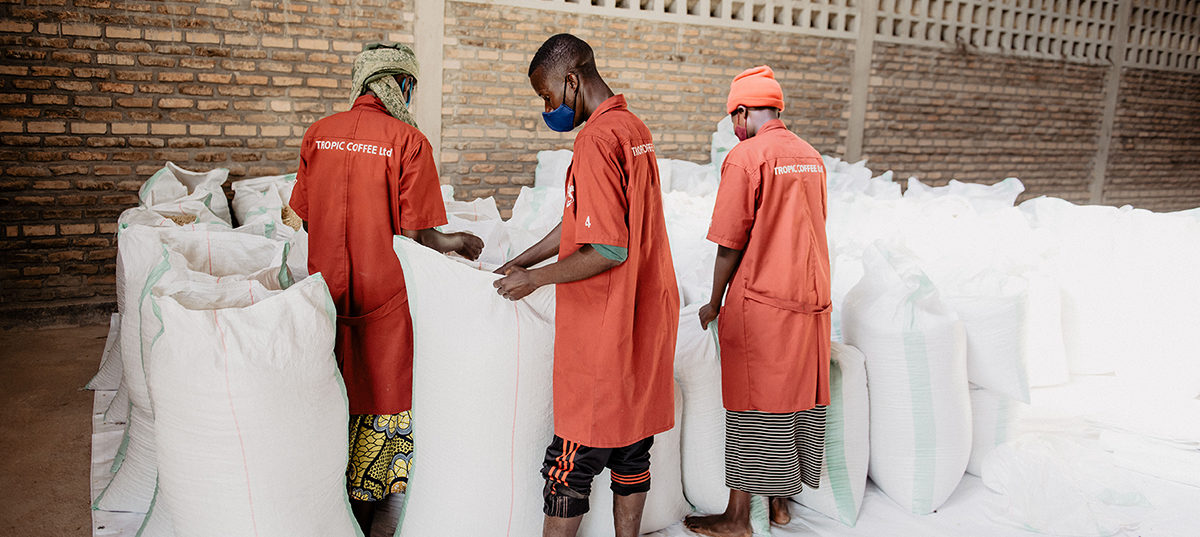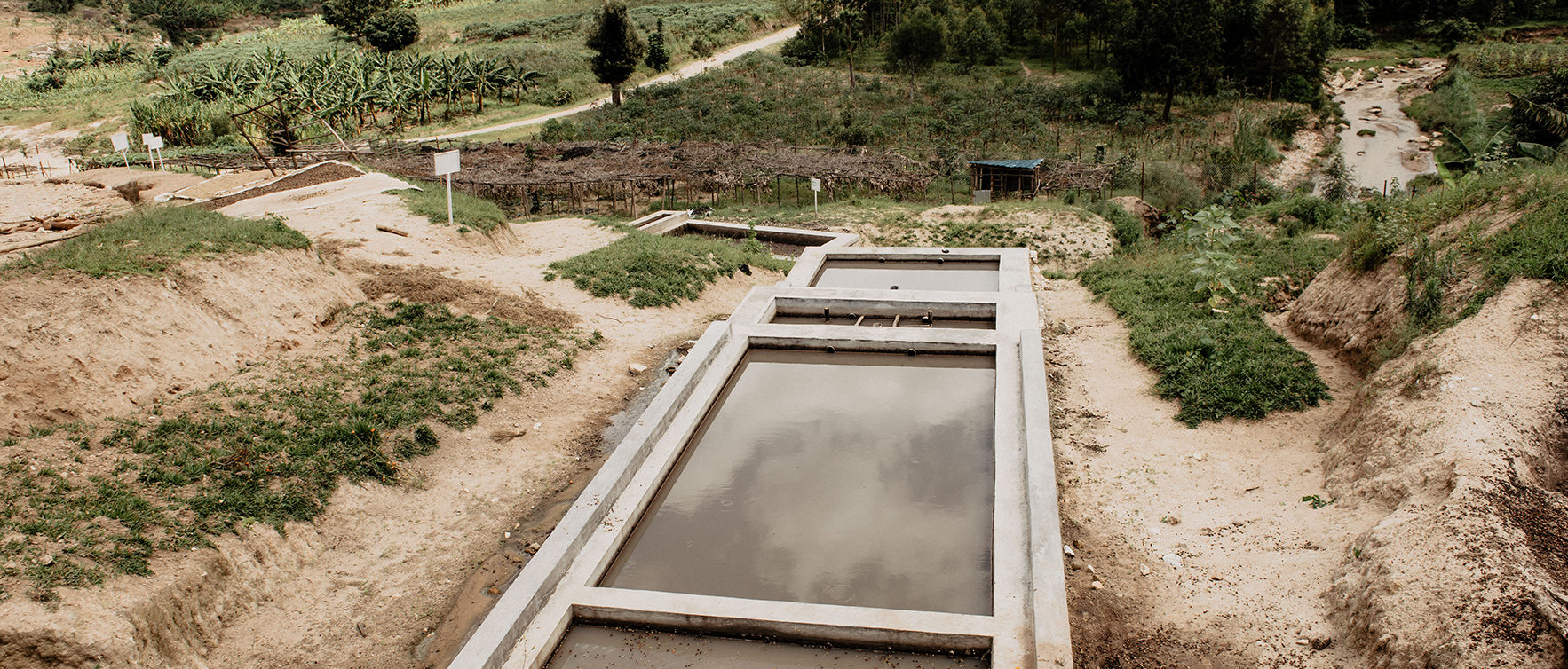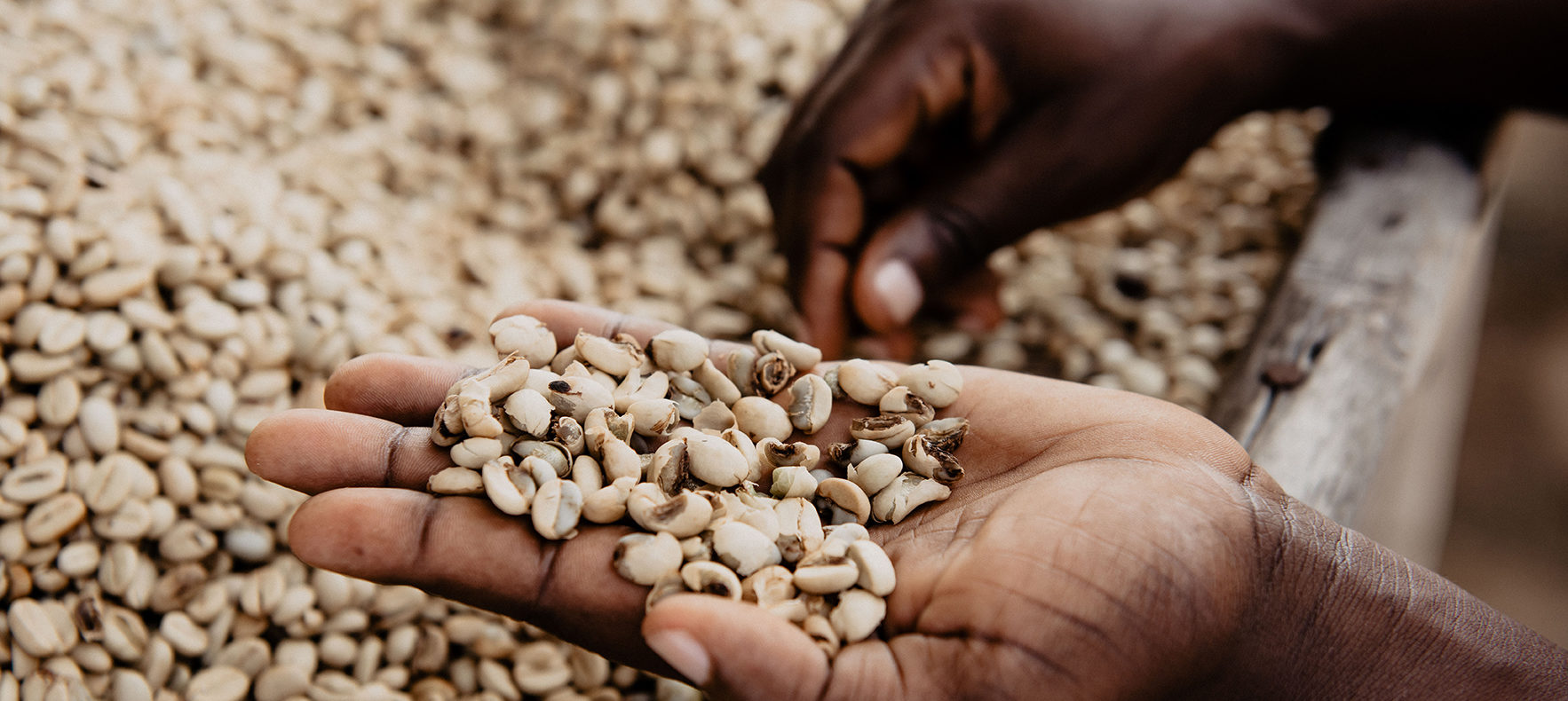Kabyiniro coffee washing station
Rwandan certified organic coffee
Kabyiniro is blessed with a tropical climate, abundant rainfall and high altitudes of 1,700 – 1,950m above sea level. It is another of Rwanda’s best coffee growing regions. We produce 100% Rwandan certified organic coffee here that cups at 87.
Kabyiniro coffee washing station (CWS) is in Ngororero district in western Rwanda. It sits high up in the mountains at 1,600 – 1,950m above sea level. Regular seasonal rainfall combines with an annual average temperature of 16°C – 21°C.
In the past, farmers here mostly engaged in subsistence agriculture. They grew crops such as cassava, maize, bananas, beans, potatoes, fruits and vegetables to eat, and occasionally sell. Very few farmers were growing coffee.
Now farmers know that coffee is a well-paid cash crop, and that with care, specialty coffee can thrive here.

Kopiguka
Cooperative
shares the work
and the profits
In 2003, local farmers in Kabyiniro joined together to create a cooperative (six men and 22 women). They requested land from the district authorities to develop coffee farming. It was approved and they were given 30 hectares of land. Each farmer is now responsible for an individually allocated plot.
In 2004, they legally registered Kopiguka Cooperative with the aim of sharing the work and improving their farming systems, processing and marketing. But there was no washing station in area where they could sell their harvested coffee cherries.
So, they started to mobilize other coffee farmers to join the cooperative. Their number increased to 44 members and their coffee trees from 26,000 to 40,000 trees in 2020.
When Tropic Coffee built a washing station here, farmers were able to sell their cherries locally, cutting down on long and expensive transport to another station further away. More than half of our coffee now comes from Bucyecyeri Coffee Estate which is largely owned by a group of women in the Kopiguka Cooperative.

Sustainable,
organic farming
for specialty
coffee
The coffee trees on farms in the Kabyiniro region are planted in rows leaving space in between to grow grasses for organic mulching. This also increases soil fertility and biodiversity, and minimizes insects and fungi.
These good agricultural practices result in high production (10 tons/ha) and a better quality of harvested cherries.
The farmers handpick their coffee cherries with the help of temporary pickers during the peak harvesting season. This provides a local source of work and income.
Tropic Coffee buys all coffee in this region directly from individual farmers. This means we can give farmers a reliable, fair price and immediate returns.
It also means we can trace our coffee back to individual farms.

Processing our certified organic coffee
Our Kabyiniro CWS can process 395MT of coffee cherries and we quality check at every stage.
After pulping, the coffee is fermented overnight between 12-18 hours before grading. We use a floating system to remove any poor-quality cherries before processing. This system separates coffee by its density – those with less density float to the top and are discarded.
This stage is followed by pre-drying on tables in covered shelters, and then on outside drying tables for prolonged drying. During both phases, our women workers intensively quality check and hand sort the coffee beans.
Each farmer has their own booklet to record daily deliveries. Our farmers receive payment upon delivery. The price is usually set by the government at the start of the harvest season.
At Tropic Coffee, we always aim to pay a bonus to our farmers for their premium coffee. This supports them to improve their living standards and encourages farming specialty coffee.
